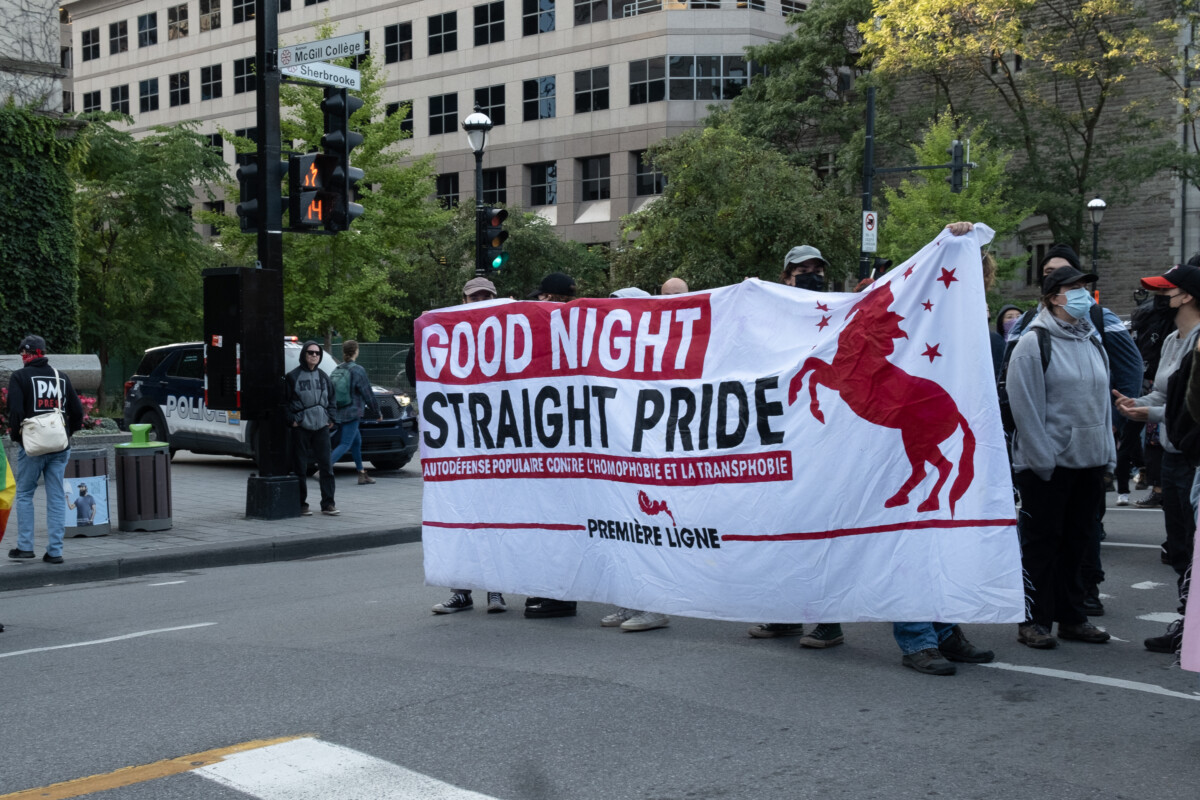Trans rights groups and anti-trans groups debate what is best for children’s education about gender identity
Five hundred counter-protesters took to the streets of Downtown Montreal on Sept. 20, fighting for trans people’s rights against the opposing protest “1 Million March 4 Children,” that seeks to advocate the “elimination of the Sexual Orientation and Gender Identity (SOGI) curriculum, pronouns, gender ideology and mixed bathrooms in schools.”
Both protests took place nationwide, accompanied by 61 counter-protests.
Anti-trans protesters chanted “Leave our children alone” and “Parents know best” in the direction of counter-protesters, who they believe are trying to “indoctrinate their children with sexualization” according to their website.
Celeste Trianon is a trans jurist, organizer of the “No Space for Hate” protest and one of the two national coordinators of the same campaign. She has dedicated her life to standing up for trans rights and creating an environment where they feel safe and accepted.
“There is no space for hate across Canada, and we’ve historically been one of the safest countries for 2SLGBTQ+ people across the world and we want to make sure that continues,” Trianon said.
“Remember, our Canadian Charter has protected us [the 2SLGBTQ+ community] since the 80s. Where have all those values gone? Let’s not dismantle our Charter and the very things that make us Canadian.”
Corey Kutner, a trans person studying at Concordia, attended the counter-protest. They do not agree with the way the trans community is being presented to children.
“A lot of people are falsely equating being trans and educating children about what it means to be trans with really awful things like being a pedophile, a groomer. I just want to do my part of combating that misinformation and standing up for trans people everywhere,” Kutner said.
Trans rights protesters walked down Sainte-Catherine holding signs such as “Protect Trans Kids,” “We Were Always Proud,” and “Trans people have always existed,” while chanting “Trans Rights are Human Rights.” While there were 750 anti-trans protesters, they were drowned out by the trans rights protesters, who made sure their message of solidarity was clear.
“I’m hoping that everyone will just be able to get a better idea of just how many people there are out here who want to fight for transliteration and that it is a loud minority that is in opposition,” Kutner said.
Caroline Raraujo, a mother from Brazil, came to support the fight on behalf of her son, who came out as trans at the age of 16. She was actively involved in the 2SLGBTQ+ fight in Brazil and moved to Canada for a better life for the two of them.
“Since he came out as a trans boy, I’m acting like a shield and I’m going to protect him. I’m going to protect him wherever they try to remove his rights or attack him. And not just him, but all the trans community,” Raraujo said.
Trianon ended her interview by addressing the public:
“To our queer and trans teens, kids, adults, and elders: you are seen, you are welcome. You are welcome here in Canada, and for us, as long as we can continue making sure that you are safe here, we’re going to do everything we can in our power to make sure you are not just welcomed, but loved.”
